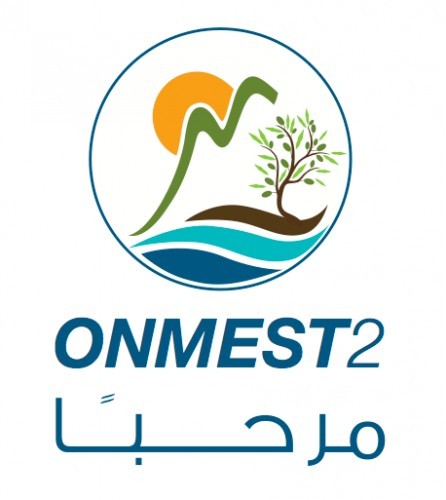
Lebanese Film Festival rides again
BEIRUT: About a year ago, Pierre Sarraf and his colleagues at Né a Beyrouth decided it was time to put down the Lebanese Film Festival. Everyone has the privilege to change their minds.
The production company had good reasons to discontinue the festival, then on the brink of its tenth edition. In 2011, Sarraf told this journalist, the shape of the film festival landscape in Lebanon and the Middle East had changed a great deal since LFF was launched in 2001 (under the name “Né a Beyrouth”). With the number of festivals competing for Lebanese film premieres swelling, it was becoming ever harder to find new films for LFF.
Sarraf envisioned a new formula. Rather than devoting so much energy to a once-a-year festival, he and his colleagues imagined smaller events tailored to individual films.
Then this spring Metropolis, Beirut’s independent art house cinema, launched “Scrapbook,” a program that gave a bundle of recent critically acclaimed feature-length films Beirut premieres followed by theatrical release.
“When I saw that Metropolis had started” Scrapbook, Sarraf recalls. “I said, fine, let’s keep the festival and try to coordinate [with the cinema in] releasing films in this way.”
The root problem, Sarraf remarked in 2011, was that Né a Beyrouth’s first priority was filmmaking. As the festival grew in popularity, the filmmakers who created it had less and less time to run it.
“I said at the time that if we had the right team to take over [LFF], that would be a [way to continue], but at the time we had no clue as to who could do that.”
The right team, Né a Beyrouth decided, is “bande à part,” a company founded by Sabyl Ghoussoub that takes its name from a title by French auteur Jean-Luc Godard.
“Sabyl and her team were very enthusiastic about taking over the festival. For me it was the best solution: To keep the event, try to coordinate with whatever is happening in town, especially at Metropolis, to organize premieres at the festival, with Metropolis launching them.
“This year ... there was no coordination. Nine very interesting docs were released before the festival so we couldn’t take any of them, including my own film, Wissam Charaf’s ‘It’s All in Lebanon.’”
Né a Beyrouth and bande à part decided to do business relatively late in the process and they immediately faced funding challenges. Before its dissolution in 2011, LFF enjoyed a lucrative partnership with Banque Audi which, Sarraf notes, no longer exists.
“They had so much trouble trying to get money, so that even in April-May ... we still didn’t know if [LFF] would go ahead because we didn’t yet have any funding. Very quickly, though, they were able to gather a number of partners to replace Banque Audi – principally the Issam Fares Foundation and [French oil company] Total, ... with several much smaller contributors.
“Total are donating a prize for the best short film. The best documentary prize is being given by UNESCO, worth an amount of $3,000. The best film prize is [being bankrolled by] the Francophone, worth 5,000 euros.”
Organizationally and creatively speaking, the rebooted LFF represents a changing of the guard, with Né a Beyrouth delegating complete control to bande à part. LFF’s new artistic director and principle programmer is Valerie Nehme, a journalist with a background in cinema.
“We provided some advice when it was needed,” Sarraf says. “Our biggest contribution was in [assembling individual programs] – which films to put where, at what time, and so forth.”
At four days in length, the resurrected LFF remains a brief festival. As with previous editions, the program includes competition and non-competition films.
Though a few of the films fall into “television documentary” length, the vast majority of the Lebanese films are shorts. These include short fictions and documentary works, experimental art films and music videos – which have a program of their own Friday evening at ArtLounge.
The non-competition films include a “carte blanche” selected by Beirut auteur Ghassan Salhab. He’s selected Agnes Vargas’ 1968 “Black Panthers” (“Huey”) – a half-hour-long look at a rally to free the Huey P. Newton, the imprisoned leader of the Black Panthers militant group – to be followed by G?ran Olsson’s feature-length doc “The Black Power Mixtape 1967-1975,” from 2011.
Other significant non-Lebanese films in the program include “The Suffering Grasses: When Elephants Fight, It Is the Grass That Suffers,” the 2011 doc by Brazilian activist and filmmaker Iara Lee, who will be on hand to present her film. “Damas, au péril du souvenir” is the 2012 doc of Marie Seurat – wife of the French researcher Michel Seurat (1947-85), who was kidnapped in Lebanon in the ’80s and died during captivity.
“Beautiful City,” is a feature film by award-winning Iranian writer-director Asghar Farhadi. It was made in 2004, before the critical and commercial success of his most recent features – 2009’s “About Elly” and 2011’s “A Separation” – made him famous.
Complementing the festival’s “straight” projections are a pair of cinema-music performances. The first pairs Lebanese trumpet virtuoso Ibrahim Maalouf with “Ghosts Before Breakfast” (aka Vormittagsspuk), the 1928 short by German Dadaist Hans Richter.
Later in the program, the guitar trio of Sharif Sahnaoui, Charbel Haber and Tony Elieh will accompany “Une journee en 59,” a new work by LFF’s erstwhile artistic director Nadim Tabit.
Rounding out the program are a range of conferences – which range from high-minded roundtable discussions to light-hearted meet-and-greet sessions with local film luminaries.
“There is a kind of continuity in the program,” Sarraf continued. “There are new names in the program but there are also several directors whose work we have screened before – Hady Zaccak, Ghaith al-Amin, Roy Arida, Hisham Bizri. These are balanced by the new talents.
“We’re positioning ourselves as a young film festival, with a minimum of 25-30 percent of the program from directors who are being screened for the first time. Because the premieres of feature films are taken by the bigger regional festivals, our best positioning is to focus on new talent.”
The Lebanese Film Festival runs from Aug. 23-26 , with most events taking place at Metropolis Cinema-Sofil. For more information see http://www.lff2012.org.
Read more: http://www.dailystar.com.lb/Culture/Film/2012/Aug-22/185292-lebanese-film-festival-rides-again.ashx#ixzz24Zji5UCJ
(The Daily Star :: Lebanon News :: http://www.dailystar.com.lb)






 Elias Sahyoun
Elias Sahyoun
